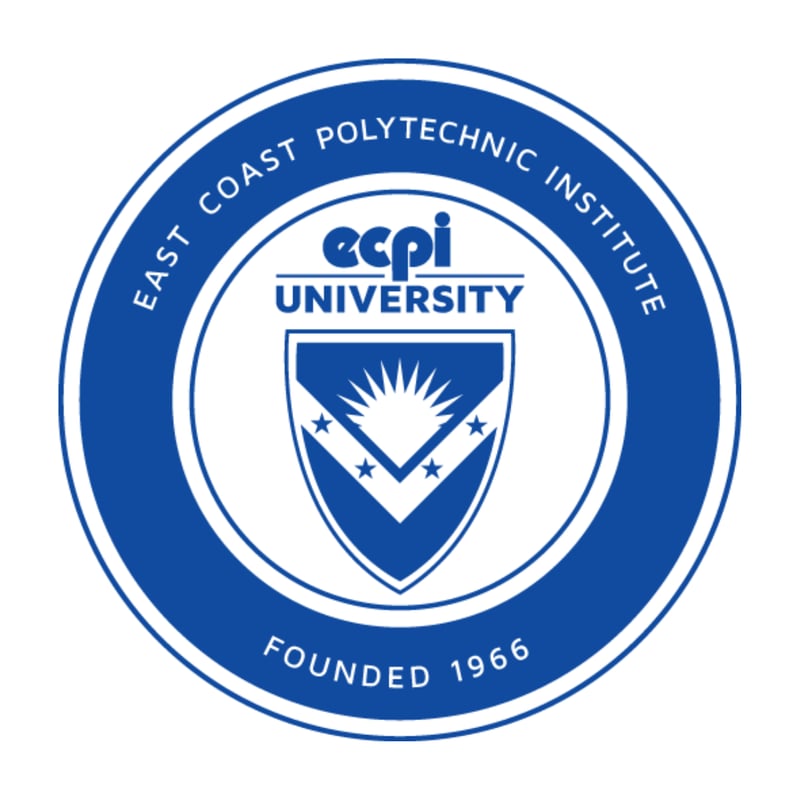
Financial aid (may be available)

No cost info

Financial aid (may be available)

Financial aid (may be available)

Financial aid (may be available)

Financial aid (may be available)

Financial aid (may be available)

No cost info

Financial aid (may be available)

Financial aid (may be available)

Financial aid (may be available)

No cost info
No cost info
Learn about the components of supply chains including supply chain networks, supply chain facilities, transportation, and inventory management as well as how emerging technologies affect them with our Supply Chain Fundamentals Certificate. These courses are perfect for learners seeking to enter the supply chain profession, as well as those who are seeking to enter supervisory roles or enter a new domain within the supply chain.
No cost info
This certificate program provides a foundation in supply chain and logistics management from both a U.S. as well as global perspective, preparing participants for professional careers with manufacturers and distributors, transportation carriers, and logistics service providers.
No cost info
American Military University (AMU) offers a logistics management certificate at the graduate level. It provides in-depth study of logistics and supply chain management with consideration of global impacts.
AMU’s online logistics certificate emphasizes transportation factors related to logistics, especially the maritime industry. The curriculum covers topics such as:
Transportation policy and planning
Transportation management and economics
Port and terminal operations
This program is an appropriate choice for those who wish to increase their knowledge of logistics and supply chain management without committing to a full degree program.
No cost info
No cost info
The online Logistics and Supply Chain Management Certificate from CCU will help you gain a deeper understanding of the processes and fundamentals within supply chain and inventory management, including purchasing and inbound logistics; material handling in distribution centers; warehousing and warehouse management; financial and inventory controls; transportation and distribution; and reverse and global logistics.
No cost info

Financial aid (may be available)

$2,730 total

Financial aid (may be available)
Logistics is an essential part of any business or organization, ensuring that goods and services are efficiently transported from one location to another. With the increasing demand for skilled professionals in the field of logistics, it's no wonder that many individuals are looking for logistics classes near them in Syracuse. If you're one of those individuals, you're in luck! In this blog post, we will explore the various aspects of logistics classes, including what they entail, the training requirements, what to look for in a class, and how to find related jobs. So let's get started!

Logistics involves planning, implementing, and controlling the movement and storage of goods and services. It plays a crucial role in supply chain management, ensuring that products are delivered to customers in a timely and cost-effective manner. A career in logistics can be rewarding for individuals who enjoy problem-solving, have good organizational skills, and thrive in a fast-paced environment.
Before diving into logistics classes, let's first understand what logistics is all about. As mentioned earlier, logistics involves the management of the flow of goods and services from the point of origin to the point of consumption. It encompasses various activities, including transportation, warehousing, inventory management, and order fulfillment. The goal of logistics is to optimize the flow of goods and services, minimize costs, and maximize customer satisfaction.
To pursue a career in logistics, it is advisable to undergo formal training to gain the necessary skills and knowledge. While there are no strict educational requirements for entry-level positions in logistics, having a high school diploma or equivalent is typically preferred. However, for more advanced positions or specialized roles, such as logistics manager or supply chain analyst, a bachelor's degree in logistics, business, or a related field may be required.
When searching for logistics classes near you in Syracuse, there are several factors to consider to ensure you find the best program for your needs. Here are some things to look for:
Accreditation: Make sure the class or program you choose is accredited by a recognized accrediting body. Accreditation ensures that the program meets certain quality standards and will provide you with a valuable education.
Curriculum: Review the curriculum of the class to ensure it covers all the essential topics and skills you need to succeed in the field of logistics. Look for classes that offer a comprehensive and up-to-date curriculum that aligns with industry standards.
Practical Experience: Hands-on experience is vital in the field of logistics. Look for classes that offer opportunities for practical training, such as internships or cooperative education programs. Practical experience will allow you to apply the knowledge you have gained in a real-world setting.
Industry Connections: Consider classes that have strong connections with local businesses and industry professionals. These connections can provide valuable networking opportunities and may even lead to job placement after you complete your training.
Logistics classes typically combine theoretical learning with practical training. Here's what you can expect from the day-to-day class:
Classroom Instruction: You will attend lectures and participate in discussions to learn the fundamental principles and concepts of logistics. Topics may include supply chain management, inventory control, transportation management, and logistics technology.
Hands-on Training: Depending on the class, you may have the opportunity to gain hands-on experience through simulations, case studies, or field trips. This practical training will help you develop the necessary skills to excel in a logistics career.
Group Projects: Collaborating with classmates on group projects is a common component of logistics classes. These projects allow you to apply your knowledge and skills to solve real-world logistics problems.
Assessments: Throughout the class, you will be assessed through exams, quizzes, assignments, and projects to gauge your understanding of the material and track your progress.
After completing a logistics class, you may have the option to pursue certification to further enhance your credentials and job prospects. While certification is not always required, it can demonstrate your expertise and dedication to the field. The certification process typically involves the following steps:
Eligibility: Determine if you meet the eligibility requirements for the certification you wish to pursue. These requirements may include specific education or work experience.
Preparation: Study and prepare for the certification exam by reviewing the relevant material and taking practice tests. You may also consider enrolling in a certification preparation course to ensure you are adequately prepared.
Exam: Schedule and take the certification exam. The exam will assess your knowledge and skills in the field of logistics. Upon passing the exam, you will be awarded the certification.
Maintenance: Some certifications require ongoing maintenance, such as continuing education or recertification exams, to ensure your knowledge remains current.
Once you have completed your logistics class and obtained any necessary certifications, you will be ready to start your job search. Here are some tips to help you find related jobs in the field of logistics:
Networking: Build a strong professional network by attending industry events, joining logistics associations, and connecting with professionals on platforms like LinkedIn. Networking can often lead to job opportunities or valuable referrals.
Online Job Platforms: Utilize online job platforms, such as Dreambound, to search for logistics job openings. Dreambound is the largest platform for students to find vocational training programs, such as logistics classes, and provides all the information you need to find the perfect class.
Company Websites: Visit the websites of companies in the Syracuse area that are known for their logistics operations. Many companies post job openings directly on their websites.
Professional Development: Stay up-to-date with the latest trends and developments in the field of logistics by attending workshops, conferences, and seminars. This ongoing professional development will demonstrate your commitment to the field and may open doors to new job opportunities.
Once you have established a career in logistics, there are several other classes you can consider taking to enhance your skills and advance your career. Here are some examples:
Supply Chain Management: This class focuses on the coordination and management of all activities involved in the supply chain, from sourcing raw materials to delivering the final product to customers. It covers topics such as demand planning, supplier management, and global logistics.
Warehouse Management: This class delves into the principles and best practices of warehouse management, including inventory control, order fulfillment, and warehouse layout optimization. It also covers the use of warehouse management systems and other technologies.
Transportation Management: This class explores the various modes of transportation used in logistics, such as trucking, rail, air, and sea. It covers topics such as route planning, carrier selection, freight forwarding, and transportation cost optimization.
Inventory Management: This class focuses on the effective management of inventory to ensure optimal levels, minimize costs, and meet customer demand. It covers inventory control techniques, demand forecasting, and inventory valuation methods.
If you're interested in pursuing a career in logistics, taking logistics classes can provide you with the necessary skills and knowledge to succeed in this field. By finding logistics classes near you in Syracuse and investing in your education, you can position yourself for exciting job opportunities and a rewarding career. Remember to consider factors such as accreditation, curriculum, practical experience, and industry connections when choosing a class. And don't forget to utilize platforms like Dreambound to find the perfect logistics class for you. Good luck on your logistics journey!
If you're considering pursuing this certification in a different location, we have other in-depth guides to help. Check out our guides for different cities below:
Exploring different career paths? Dreambound offers in-depth guides to assist you in making well-informed decisions. Explore some of these resources below:
Dreambound's platform allows prospective students to find the right educational program for them through searching, filtering, and connecting with our extensive selection of career & technical education partners.
Dreambound has over 70 programs across healthcare, technology, business, and industrial trades. This includes programs such as Medical Billing, Cybersecurity, and welding.
Some of our schools offer financial aid for those who qualify. Many others offer payment plans, where you can pay the cost of class over time.
Yes, Dreambound offers many online programs. On Dreambound's search, you can filter by online, in-person, and hybrid (part online, part in-person).
Dreambound is completely free for you to use! We are supported by schools and organizations who pay to advertise on our website, so we can offer all of our career resources for free.